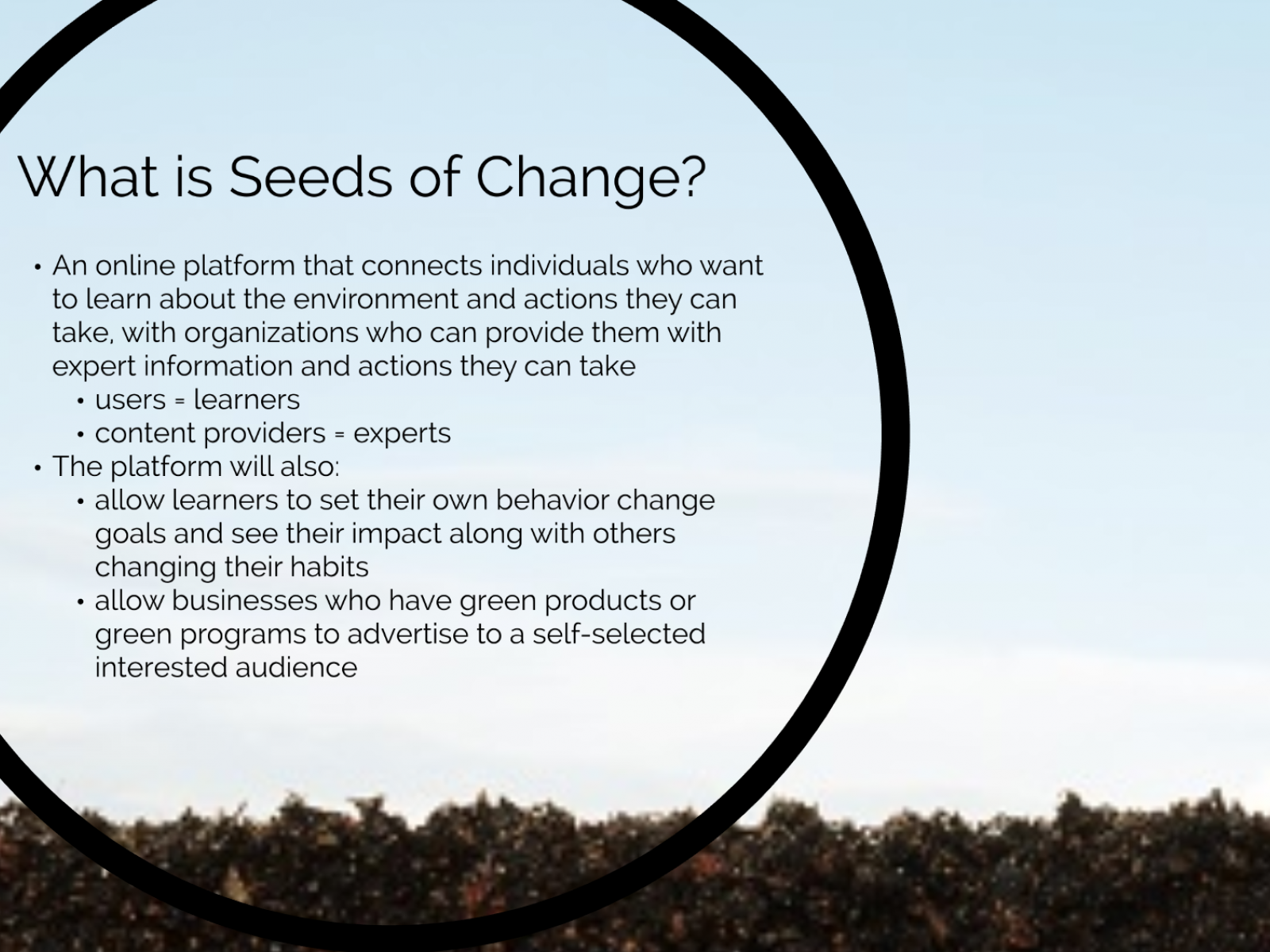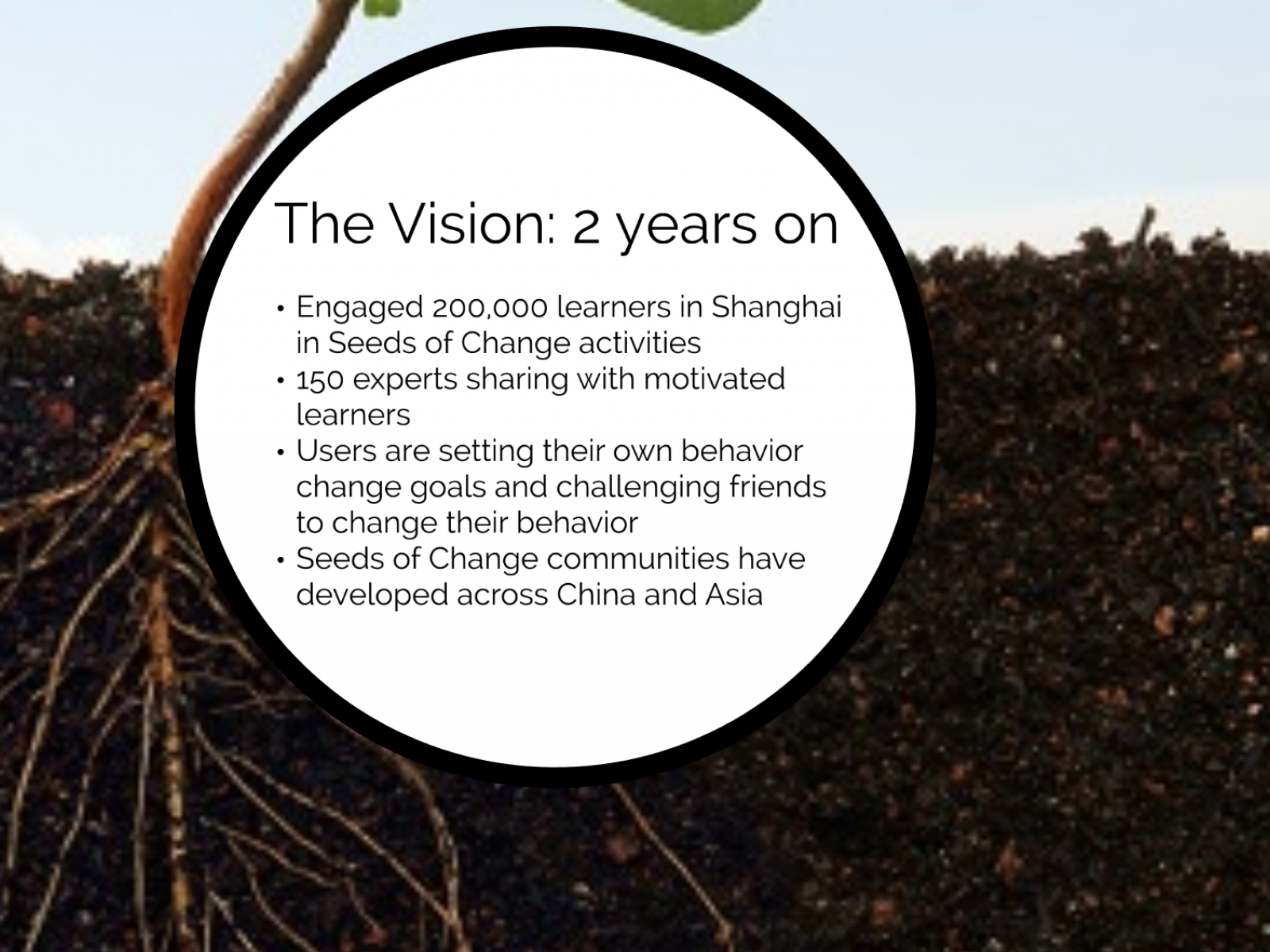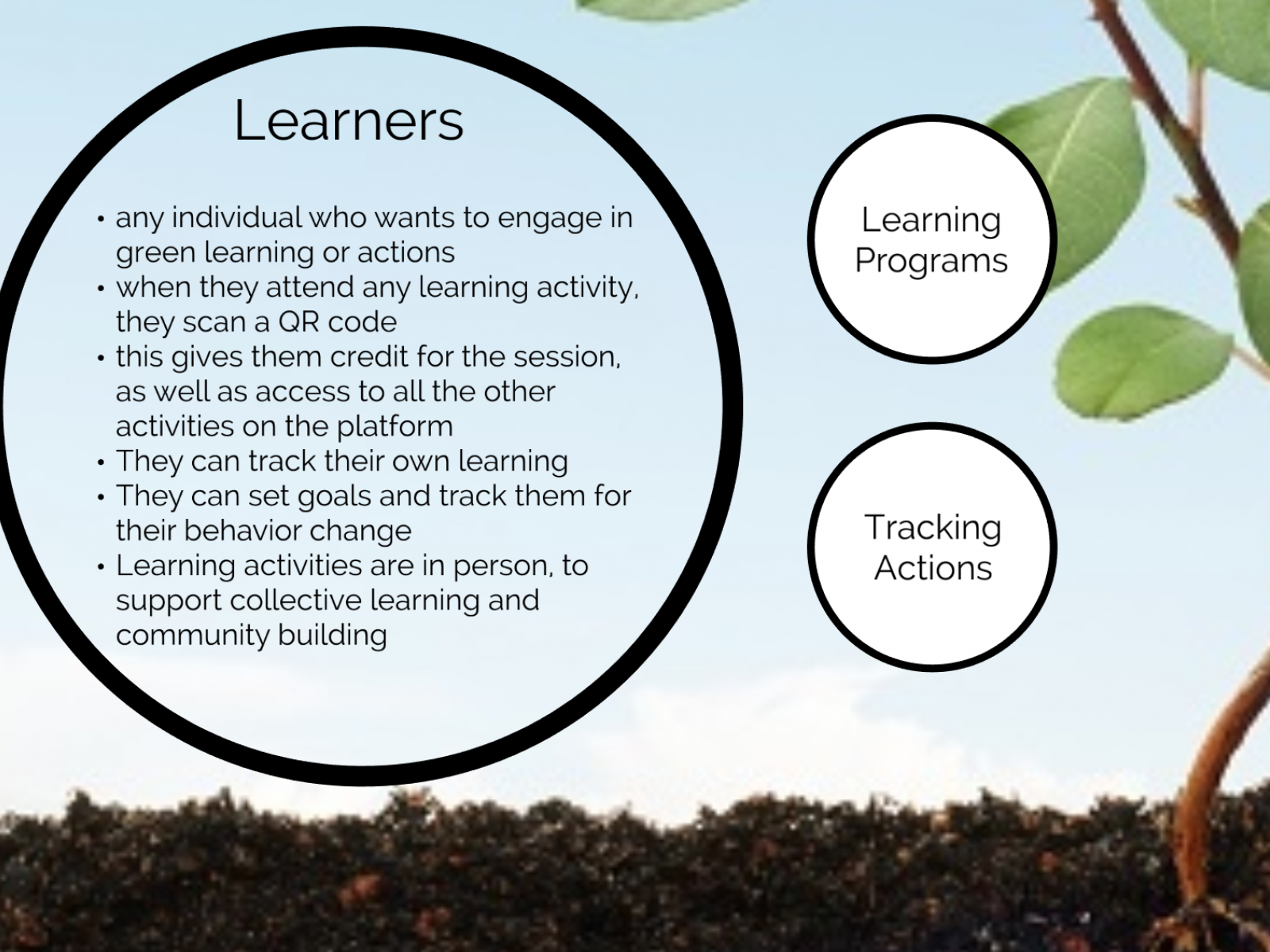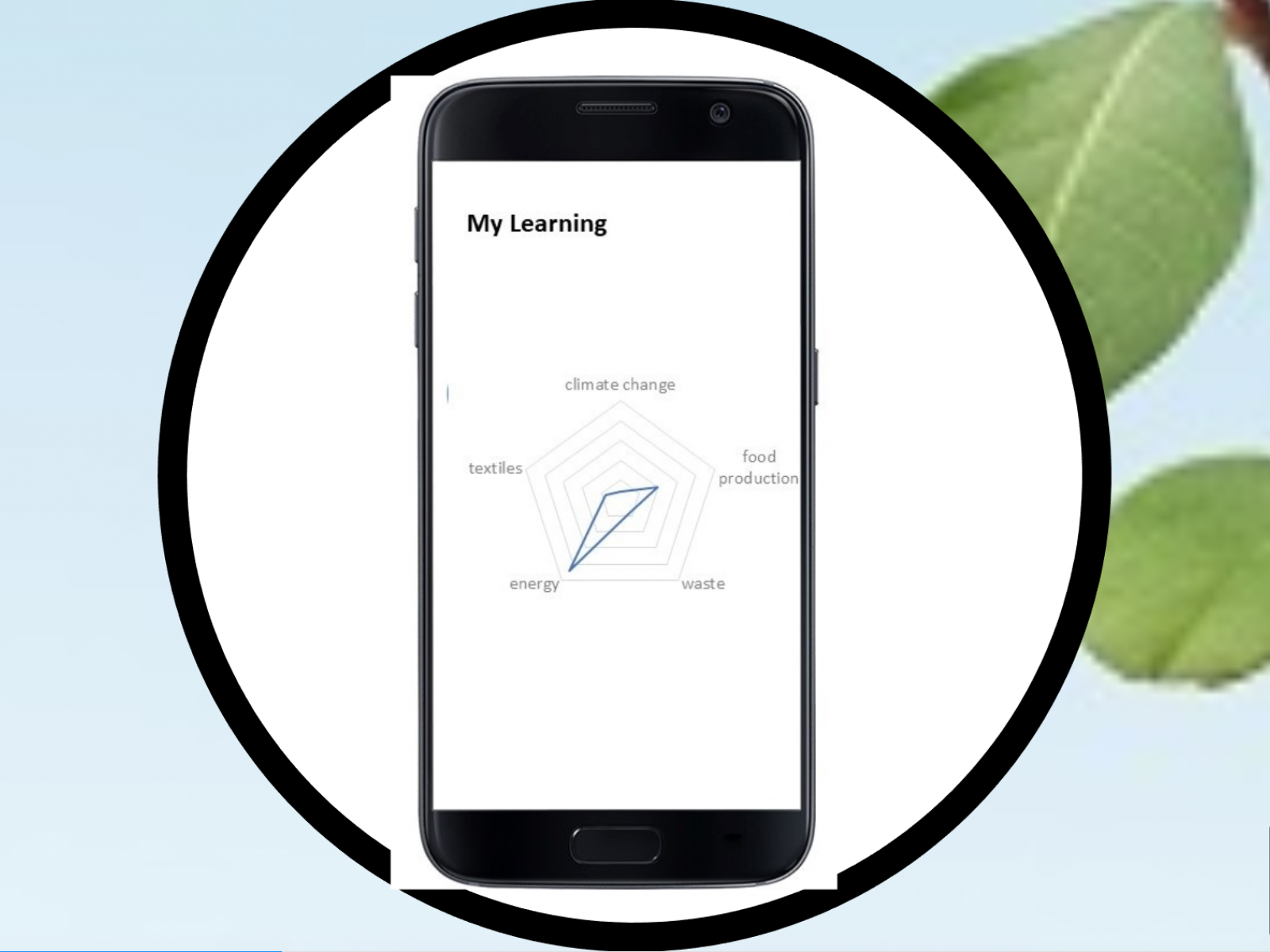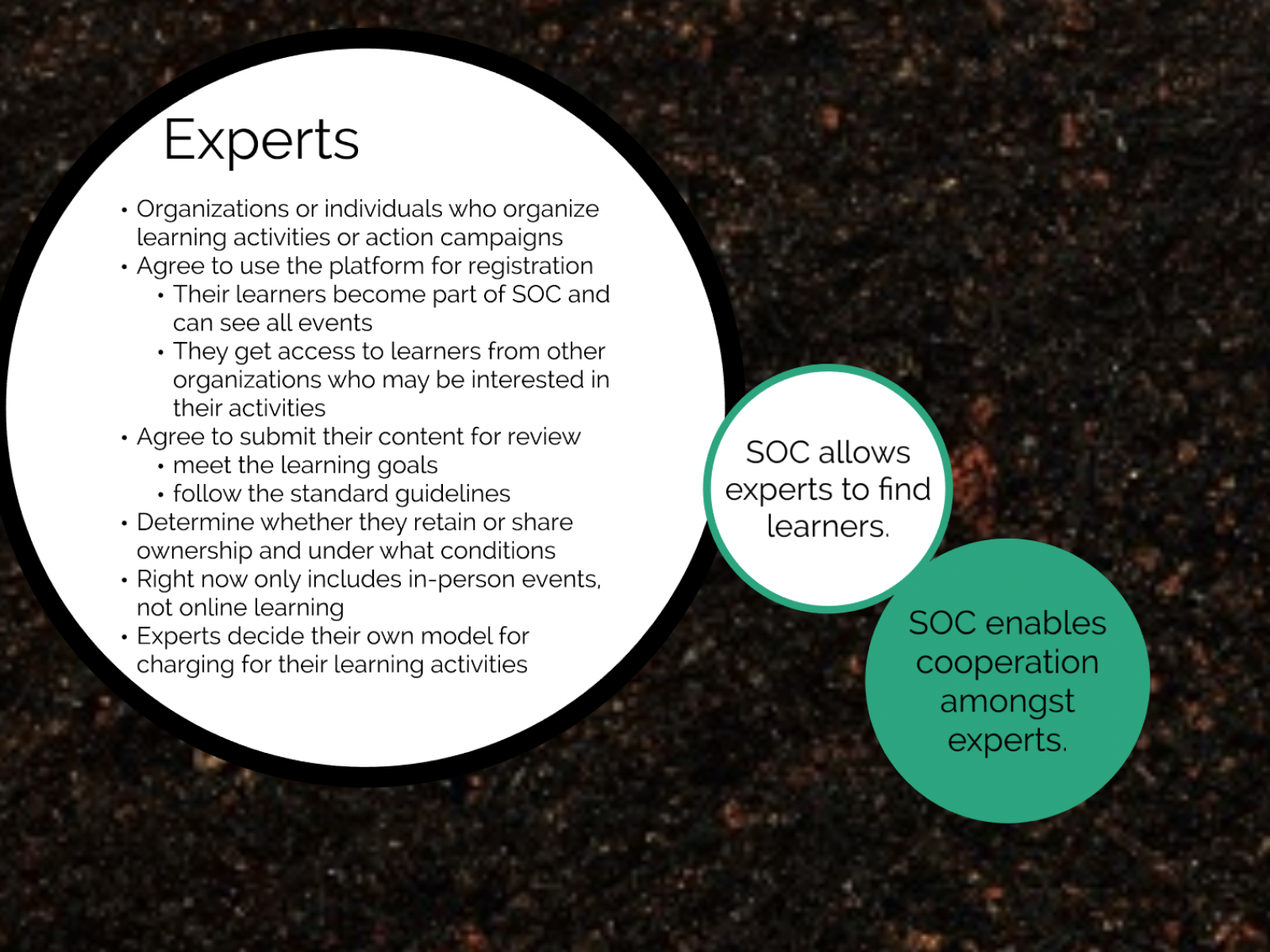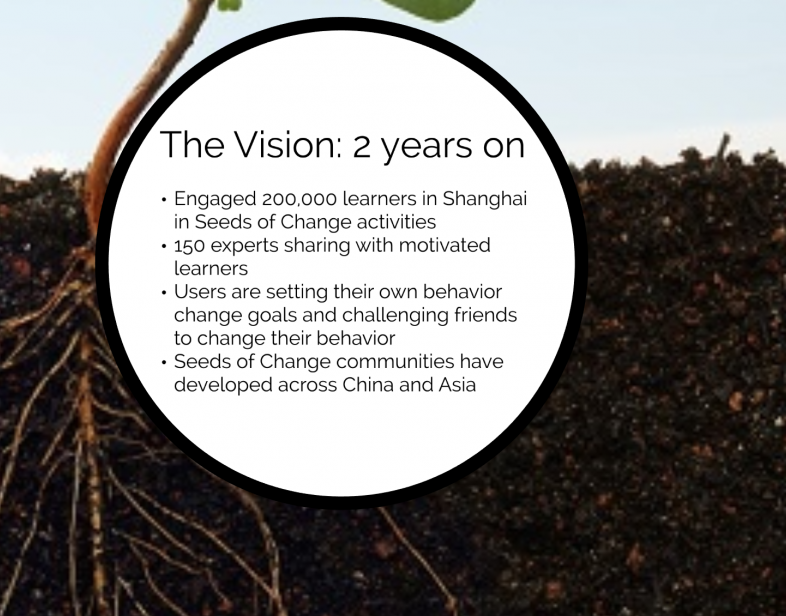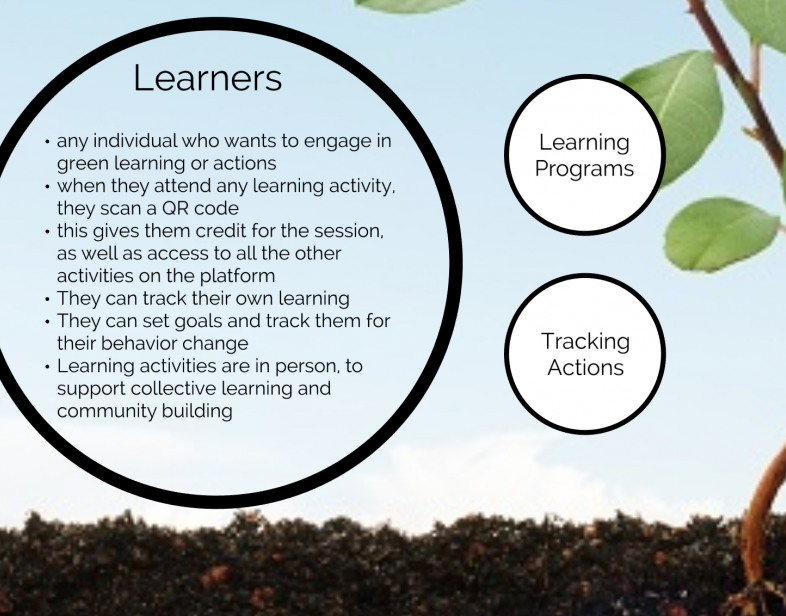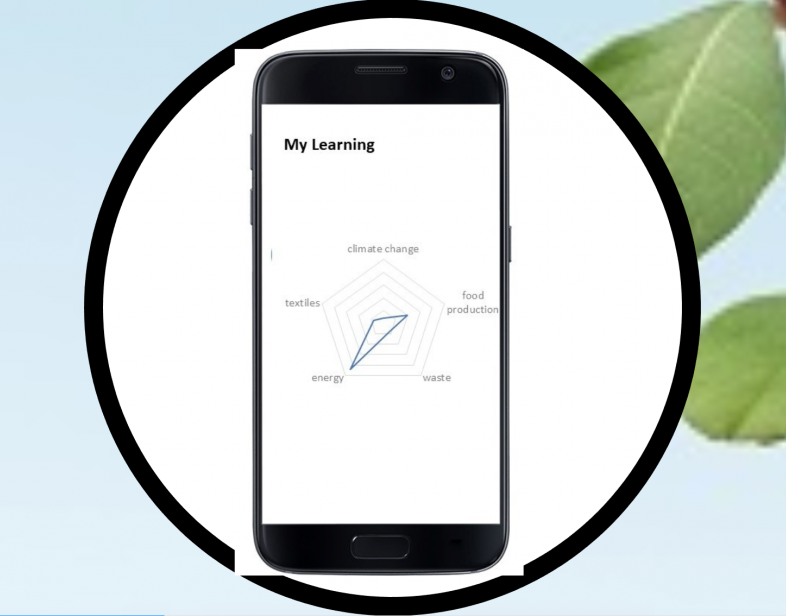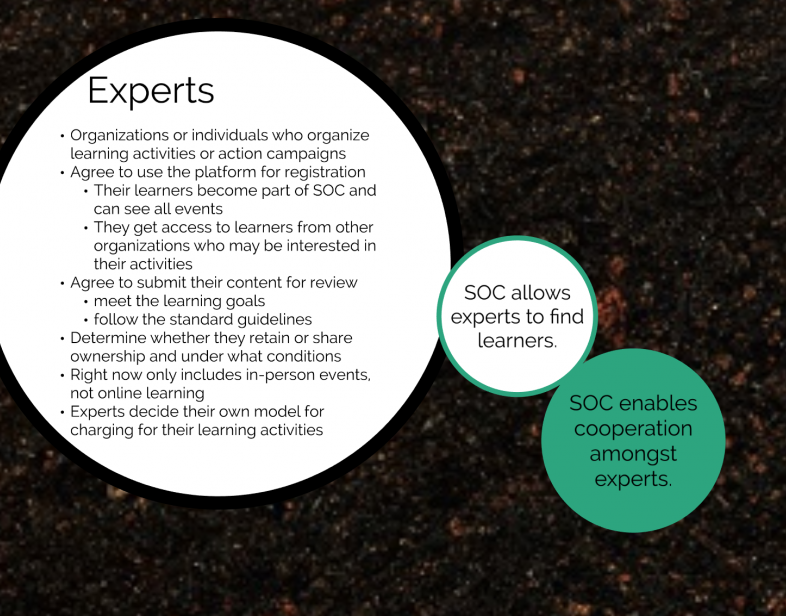An Overview Of Our Solution
Seeds of Change (SoC) is a learning and behavior change platform that connects individuals interested in learning and doing more.
It is a program of Green Initiatives, which has been based in Shanghai since 2009, and has organized over 400 events for the community focused on environmental education. GI has also implemented 6 campaigns, all with tangible impact, and Impact Projects on recycling of textiles, paper and electronics working with credible recycling companies. Thus we have gone from knowledge to behaviourial change to action. Seeds of Change for is an umbrella program that brings all these together under a framework and towards collaborating, long-term learning.
SoC, in the future, will allow them to set their own behavior change goals - for example to eat meatless meals every day for a month - track their behavior, and see their own impact.
- Population Impacted: Atleast 1000 individuals in 5 months
- Continent: Asia
Context Analysis
The SoC platform was launched in Shanghai, in Feb 2018.
There are several challenges we see, the prompted us to develop this:
a) We observe that there are many organizations, small and large, that are being established to address one area of interest in improving environmental outcomes. However, organizations often have trouble to maintain people's interest and sustain behavior change. They also cannot offer any ways to engage beyond their own individual solution.
b) Individuals are interested in different areas of environmental learning and action, but the marketplace of ideas and organizations is confusing and overwhelming.
c) Corporations are facing a huge HR challenge. People are not engaged to their work, very little loyalty towards the company, not many learning opportunities that can contribute to improving decisions and choices in their daily life off work, missing valuable bonding between individuals, and a severe detachment from environmental and social issues.
Describe the technical solution you wanted the target audience to adopt
Seeds of change is an platform currently run through China’s most popular social networking and communication tool, WeChat (or ‘weixin’ in Chinese). The platform brings together learners who want to know more about the environment and how they can change their behaviors, with experts who can provide them with information and experiences as to what changes they can make. Learners can track their progress through different learning modules with atleast four different kinds of activities in each module, viz., a documentary film, a workshop, a field trip for experiential learning, and a 3-week call-to-action campaign focusing on behaviorial change. Currently, the campaign is defined by the expert delivering a specific module but in future individuals can select from a wide range of other ‘actions’ via the app.
Type of intervention
Describe your behavioral intervention
One of the biggest interventions for us is using ‘vice as a virtue’ we aim to draw more people to engage in meaningful learning.
An example would be a corporate scenario: while employees may not initially care to join these learning sessions, they would be motivated to join them if they see that they are going to be awarded credits that may get them recognition with the HR. HR, on the other hand, would be able to use this as soft KPI for appraisals, promotions and/or additional responsibilities.
Further, we are trying to change a variety of behaviors, allowing learners to select which areas they are most passionate about, and then move through the curriculum to increase their engagement and impact. A learner can start with the climate change module, and make a commitment to use public transportation or shared bicycles more often. They could then choose to deepen their commitment in climate change, or move to another learning module such as waste and engage with a film, workshop, a field trip to a recycling plant or a clothes sorting party (where textile donations are sorted for re-use or recycling) and set their own waste reduction goals such as starting to compost at home or changing their purchasing habits to vendors who use less packaging.
As needed, please explain the type of intervention in more detail
SoC can provide many kinds of interventions. Among a few:
1. Experts who use the platform for learning activities use emotional appeals and information about choice architecture to educate learners about their choices. Within the platform itself, using the goal setting function, learners will be able to see the both the behavior changes of others, as well as how their own behavior changes contribute to the net good, establishing new social norms amongst their peers.
2. We also appeal to the social incentive of wanting to be a leader in creating positive change, dispersing useful knowledge, and being social leaders. The campaign relies on generating a "feel-good" mindset in our participants, knowing that even simple actions that they take can generate a positive and quantifiable impact in order to motivate them to continue learning about and engaging in environmentally sustainable behavior.
Describe your implementation
Green Initiatives has already run 6 campaigns in Shanghai in the last 2 years focused on behaviorial change. Each of these campaigns have created tremendous impact and are extremely easy to launch through the SoC platform for individuals to engage further. The key mantra for implementing these campaigns is: “make it so easy that people cannot NOT want to do it.” This we believe has been the fundamental problem with sustainability not just in China but globally. It feels like too big a word, and individuals feel helpless. It requires breaking down the actions into simple, digestible, inexpensive actions for people to follow.
External connections
We have completed the phase 1, which is the initial testing of the online platform. We are now working with partners to populate the platform with learning activities for learners. This will include activities run by many organizations in Shanghai, including (a few):
• Green Initiatives (our own activities on all kinds of environmental topics)
• Zero Waste Shanghai (DIY activities and workshops for reducing consumption and waste)
• Feiy (social entrepreneurship)
• Rainbow of Hope (food production and permaculture)
• Tiffany Pattinson (eco-conscsious fashion designer, use of natural dyes in coloring, etc)
• Precious Plastic (rethinking plastic through innovative upcycling techniques)
• Impact Hub Shanghai (social impact activities and trainings)
• Feibao (waste sorting and recycling)
Shirley Zhou (Chinese KOL with thousands of followers, teaching people about de-cluttering and living minimalist lives)
Who adopted the desired behaviors and to what degree?
Campaigns have been adopted by restaurants, individuals in communities, experts/KOL’s and corporate staff. A great example of this is the ‘Treat Without’ Meat campaign that we ran for 2 months in Shanghai that helped us reduce 557,000 L of water through 697 vegetarian meal sharings. Another example was the ‘UseLESS Water’ campaign which allowed us to reduce over a million litres of water by a simple act one could follow at home or office. Details of all these campaigns can be found on our website’s past ‘action campaigns’ section.
We will leverage these campaigns and those of our expert partners to establish the Seeds of Change behavior change activities.
How did you impact natural resource use and greenhouse gas emissions?
Through calculations that our own team did, we saved water, energy, waste, etc through linking our actions with widely available research. Sources include Plastic Free July, Science Daily, etc. This was applied for the campaigns which will in future be used for the app.
What were some of the resulting co-benefits?
The main benefit we saw was that people saw that sustainability wasn't complicated. The other benefit was what started as a community focused initiative is now spreading to companies. Hence the need to involve this in the tool and have a dashboard for organizations to see impact of their actions.
Sustainability
Initial investment in the platform development has been done by one of the lead partners in the project, Green Initiatives. Experts who use the platform to engage learners will pay a 5% surcharge of any activities they hold back to the platform to support further development. We are also planning to crowd-source funding and supplement development with prize money and grants. Lastly, we want to provide limited advertising space to green businesses - we see this as a win-win as we anticipate the Seeds of Change learners will be interested in knowing about green products and/or businesses to support, and these businesses will be keen to advertise to an audience who has self-identified their interest in green practices.
Return on investment
We have spent about 100,000RMB so far on the SoC platform. The event costs have been covered by Green Initiatives. The efficient way for us was to implement SoC in existing activities to keep costs down. But to truly scale it up the app needs to be further developed, HR dashboard needs to be created, and the UI/UX needs to be improved, at the very least, with a certain level of gamiification.
How could we successfully replicate this solution elsewhere?
SoC was designed so learners and experts globally could come under the umbrella. Events in India or Australia or any other part of the world could use the SoC framework and platform share content and invite learners. Learners, from around the world, could see activities in their towns and cities. Infact the tool does not work only through Wechat, we have a 'pin code' element to the tool whereby it could be used directly through the web version.
Once the platform is built, we anticipate that it could be used by people in any area. We will provide training to people who want to start a Seeds of Change community in their area, be that from the learner side or the expert side. There will be some additional costs to the platform development to increase uptake, such as additional language support and migrating the solution outside of Wechat for adoption in other countries.
